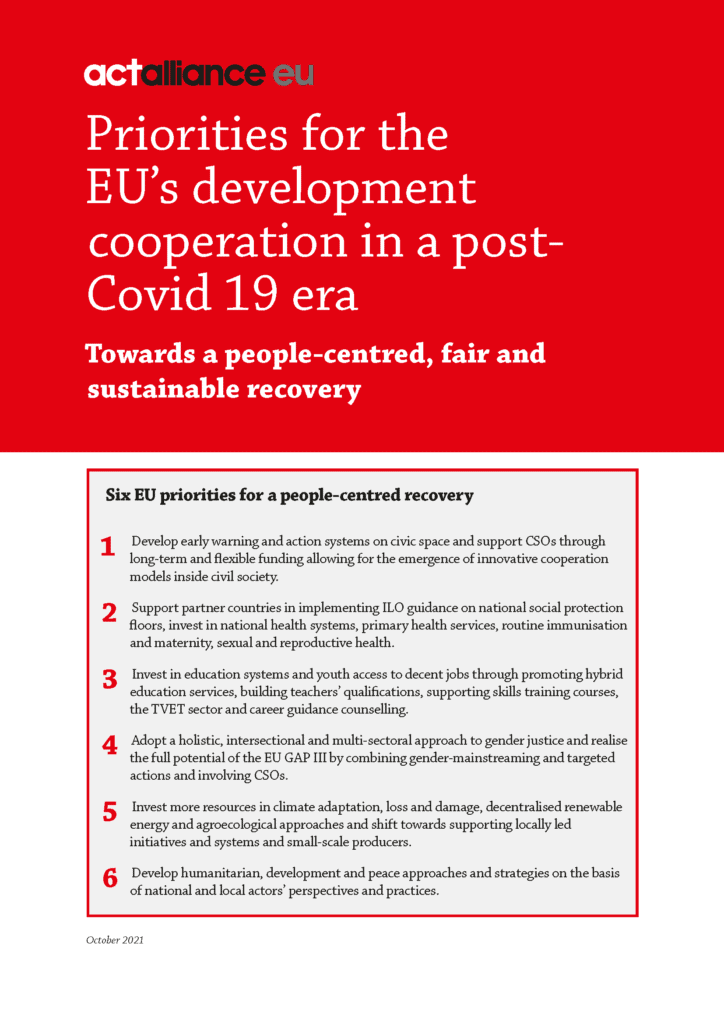Overview
This report reflects on the experiences of ACT Alliance EU and its members during the Covid-19 pandemic. It talks about the effects of rules to control the virus in poorer countries. Members of ACT Alliance EU have strong partnerships with local civil society organisations and communities in these countries. Using the insights gained from these relations, we assess the pandemic’s impact on the development process and make recommendations for people-centred development cooperation.
Our focus is on sharing key insights and recommendations for the post-Covid era. We look at pre-existing structural causes of poverty and inequality exacerbated by the pandemic. Our recommendations aim to enhance resilience to future shocks.
Impact of the pandemic: deepening inequalities and the call for a transformative approach
The pandemic and the measures taken to control it have worsened the structural determinants of poverty and vulnerability. Unemployment rates in many countries have reached historic highs, remittances from certain regions have declined, and foreign direct investments have plummeted. Existing inequalities in access to education, health, land, and water have intensified. The digital divide and unequal vaccine distribution have created new disparities. At the same time, emergency measures and laws restricting fundamental freedoms have hindered citizen participation. Those in poverty, facing discrimination, and lacking social protection have borne the brunt of these challenges.
To foster an inclusive and sustainable recovery, we advocate for a shift in the priorities of development cooperation towards more people-centred and community-led approaches. Women and young people must play a leading role. We explore effective ways of collaborating with and supporting local actors, employing a “triple nexus” approach rooted in their realities and practices.
Areas of action for development cooperation
The report emphasises five key action areas essential for advancing a fair and people-centred development process in the post-Covid era:
- Fundamental freedoms and an open civic space
- Social protection and universal health coverage
- Education and youth empowerment
- Gender justice
- Food systems, climate change adaptation, and renewable energy
Additionally, we delve into methodological approaches that can enhance the effectiveness of humanitarian and development aid, making a tangible impact at the grassroots level. The report concludes with recommendations on how development finance, Policy Coherence for Development, and a strategic use of Official Development Assistance (ODA) can contribute to achieving these objectives.
